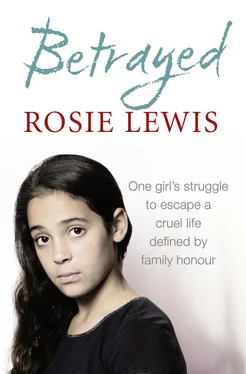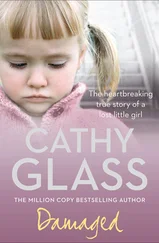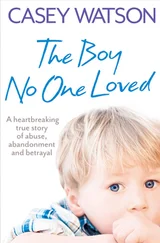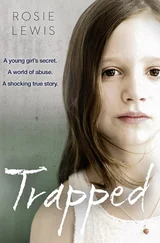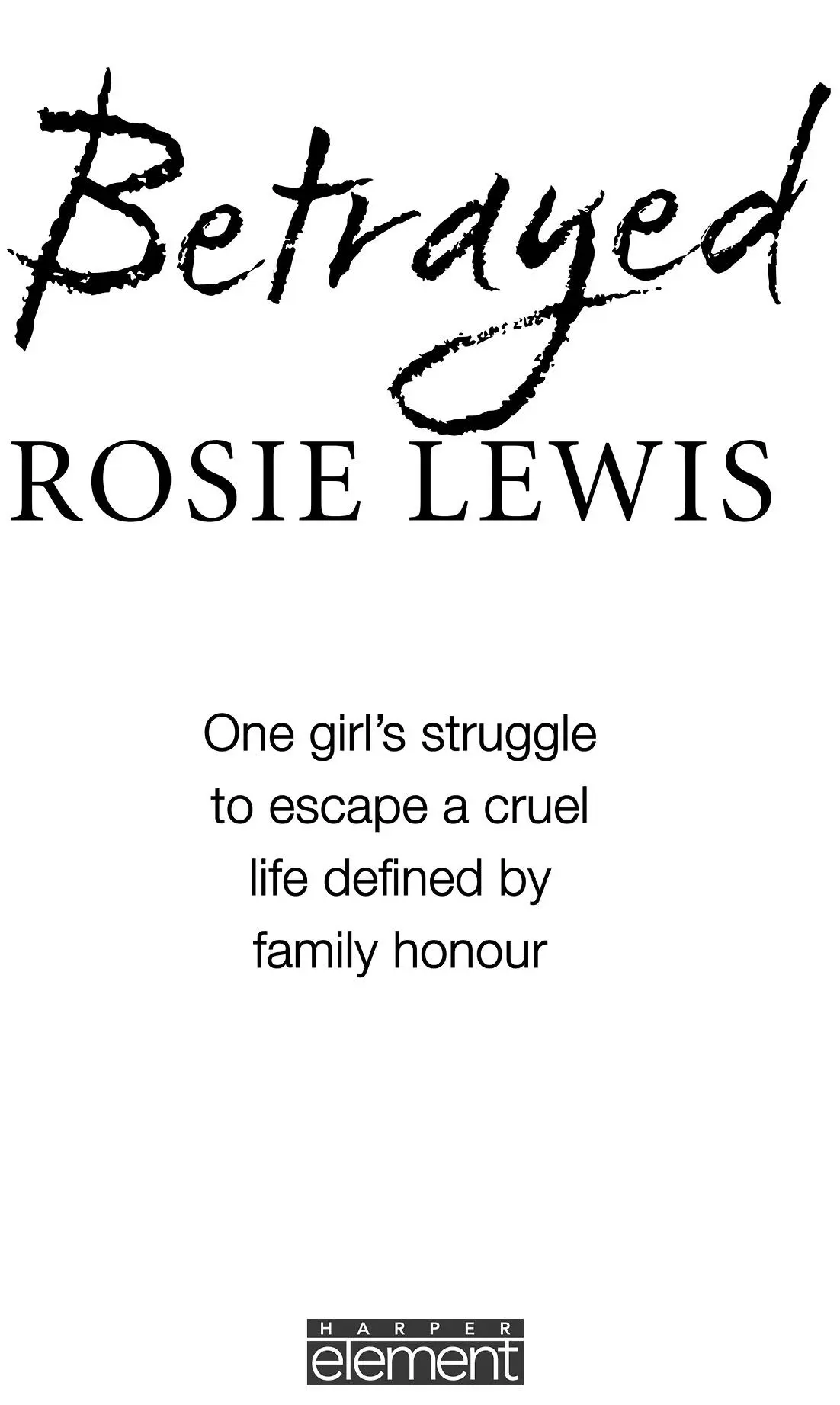
Certain details in this story, including names, places and dates, have been changed to protect the family’s privacy.
HarperElement
An imprint of HarperCollins Publishers
1 London Bridge Street
London SE1 9GF
www.harpercollins.co.uk
First published by HarperElement 2015
FIRST EDITION
© Rosie Lewis 2015
Cover layout design © HarperCollins Publishers 2015
Cover photograph © Kate Gaughran 2015 (posed by model)
Rosie Lewis asserts the moral right to
be identified as the author of this work
A catalogue record for this book is
available from the British Library
All rights reserved under International and Pan-American Copyright Conventions. By payment of the required fees, you have been granted the non-exclusive, non-transferable right to access and read the text of this ebook on-screen. No part of this text may be reproduced, transmitted, down-loaded, decompiled, reverse engineered, or stored in or introduced into any information storage and retrieval system, in any form or by any means, whether electronic or mechanical, now known or hereinafter invented, without the express written permission of HarperCollins ebooks.
Find out about HarperCollins and the environment at
www.harpercollins.co.uk/green
Source ISBN: 9780007541805
Ebook Edition © FEBRUARY 2015 ISBN: 9780007541812
Version: 2015-01-07
Cover
Title Page
Copyright
By the same author
Prologue
Chapter 1
Chapter 2
Chapter 3
Chapter 4
Chapter 5
Chapter 6
Chapter 7
Chapter 8
Chapter 9
Chapter 10
Chapter 11
Chapter 12
Chapter 13
Chapter 14
Chapter 15
Chapter 16
Chapter 17
Chapter 18
Chapter 19
Chapter 20
Chapter 21
Epilogue
Exclusive sample chapter
Moving Memoirs eNewsletter
Write for Us
About the Publisher
Helpless: A True Short Story
Trapped: The Terrifying True Story of a Secret World of Abuse
A Small Boy’s Cry
Two More Sleeps
Moonlight shrouded a robed figure as he entered the unlit hallway, his silhouette fading with a gentle clunk as the double lock was secured behind him. Nine-year-old Zadie watched the stranger’s arrival through a narrow gap in the banisters, a chill prickling across the top of her scalp at the sight of the black leather bag clutched in his hand. The realisation of what was inside made her heart pound so hard that she imagined it might squeeze through her ribs and escape from her chest.
Shivering as she crouched on her haunches, her eyes ferreted the shadows for Nadeen. There was no sign of her sister but she could just make out her father as he crossed the hall beneath her, his sandalled feet echoing on the bare floorboards. The late-night visitor followed; a thin, upright sort of man with a thick beard and greying, straggly hair; nothing like the monster who had stalked her dreams. Sensing nervousness in the way her father moved, Zadie felt another hammering inside her chest. Ripples pulsed upwards, teasing her throat into a cough.
She clamped a hand over her mouth to muffle the sound, hardly able to believe that the rumours she had feared since she was a little girl were about to merge with reality. Her stomach lurched, bile fizzing at the back of her throat. Tempted to run directly back to her bedroom, she straightened and was about to turn when muffled sobs from the back room rooted her feet to the floor.
‘Please, Papa. I don’t need an injection, please.’
Zadie squeezed her hands flat against her ears to try and block out her sister’s pleading. Closing her eyes, she was gripped by the sudden image of a woman drifting through the air in front of her. As always, as soon as she tried to reach out for the comfort she knew she’d find there, the grainy presence vanished, sounds of a struggle from downstairs chasing it away.
Zadie whimpered and ran back to her bedroom, slumping down onto her mattress and pulling her pillow over her head. An hour before first light she fell into a troubled sleep but was soon woken by a shuffling noise outside the door. Nadeen walked slowly into the room, tears rolling down her cheeks. As the 12-year-old rolled tentatively into the bed opposite her own, her legs bound tightly together with bandages, Zadie could see tell-tale spots of red on the back of her sister’s linen nightdress. Silently she crossed the room, reaching out to stroke Nadeen’s back.
Zadie sighed with relief as dawn approached and the male members of the household left for morning prayers.
‘Do you think she’ll be like Phoebe was when she first came?’ my son Jamie called out from his bedroom.
I couldn’t help but smile at the hesitancy in his tone as I swept from room to room, checking there were fresh towels in the bathroom and grabbing a floral duvet set from the airing cupboard. Nine-year-old Phoebe had stayed with us for almost a year before moving on to a long-term carer. The friendly, kind and bubbly girl we said goodbye to was unrecognisable from the angry whirlwind we had first met. Our house seemed so much emptier without her presence and, despite her leaving months earlier and other children staying with us meanwhile, we still missed her. But the first few weeks of Phoebe’s stay had been challenging for all of us, especially so for Jamie.
From the moment she arrived Phoebe had fixated on him so that, whenever she was confused or upset, Jamie would be the one who got a wet finger shoved into his ear or a plate thrown at him. As she settled and learnt to trust us we witnessed some dramatic changes in her behaviour, so much so that our motivation to foster had grown even stronger, but the traumatic start had left Jamie chary of new arrivals.
‘No, I doubt it,’ I said, though my words sounded hollow. I actually had no idea what Zadie Hassan would be like. In a hurried telephone conversation with her social worker late that afternoon, I had been told that the 13-year-old was from a Muslim family who had never come to the attention of social services before, and so information was sketchy. Of Asian heritage, Zadie had been found by two patrolling police officers early that morning, sheltering in a shop doorway in a central northern shopping centre. Apparently she had pleaded with officers not to take her home, begging as if her life depended on it. She had seemed so genuinely terrified that the officers took her straight to the police station and alerted social services.
At 13, Zadie was outside of our approved age range, but she had spent most of the day waiting at the local authority offices, listening as social workers phoned agency after agency, trying to match her with Muslim foster carers. By the time the decision was reached to settle her with a white British family it was almost 5 p.m. and the poor girl was exhausted. Strictly speaking, our family was only approved to take children from 0 to 11, leaving a gap of at least two years between any child coming into our home and my own youngest, Jamie, who was just 13. But when an ideal match isn’t possible and a child urgently needs a warm bed to sleep in, social workers are usually prepared to bend the rules.
A gap of two years is recommended between looked-after and birth children so that the family dynamics are roughly unchanged. If disrupted, resentment against the foster child can build to a point where the placement breaks down. Some fostered children have been so badly abused in their own homes that they find it difficult to witness the positive environment when they arrive in a foster home and seek to sabotage the relationships between family members, so it’s important to maintain the original pecking order.
Читать дальше
